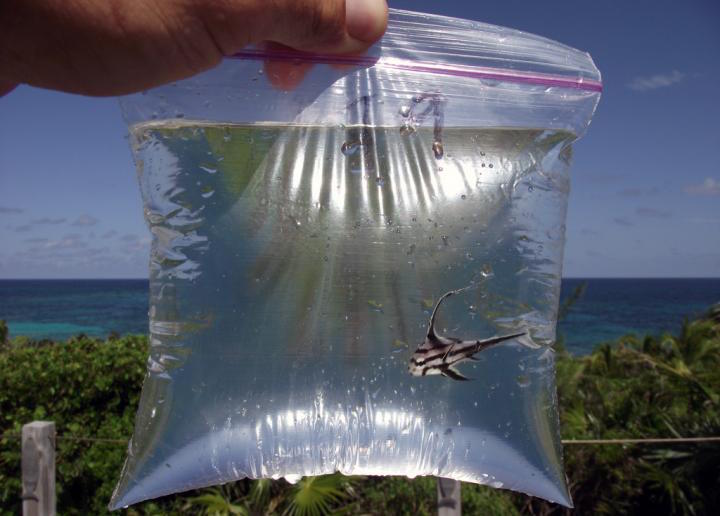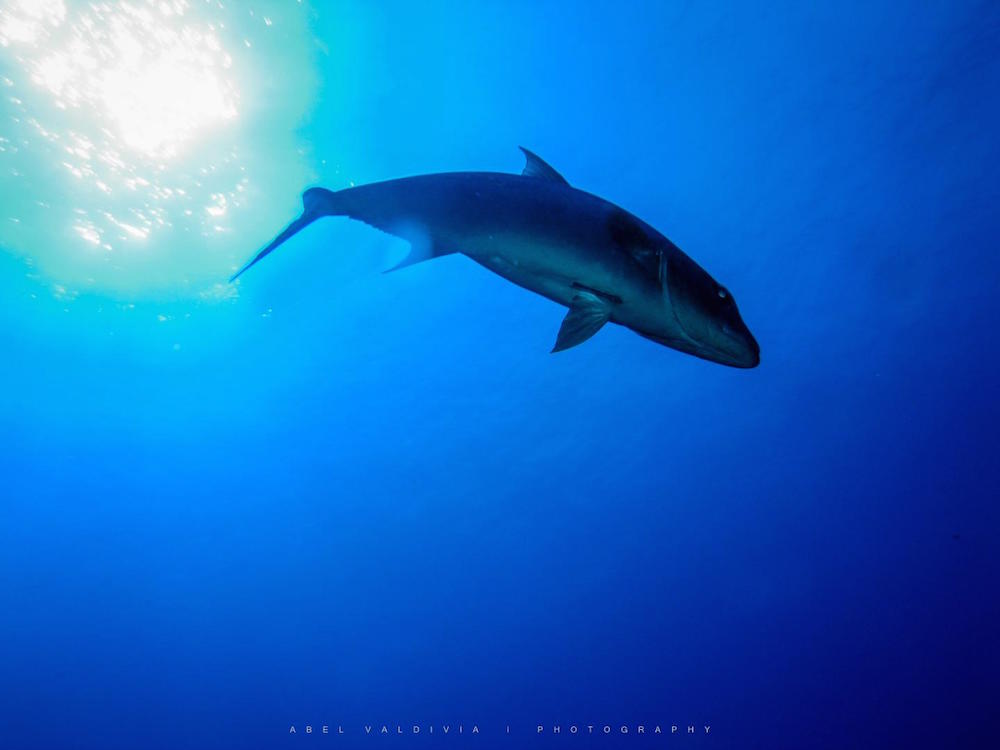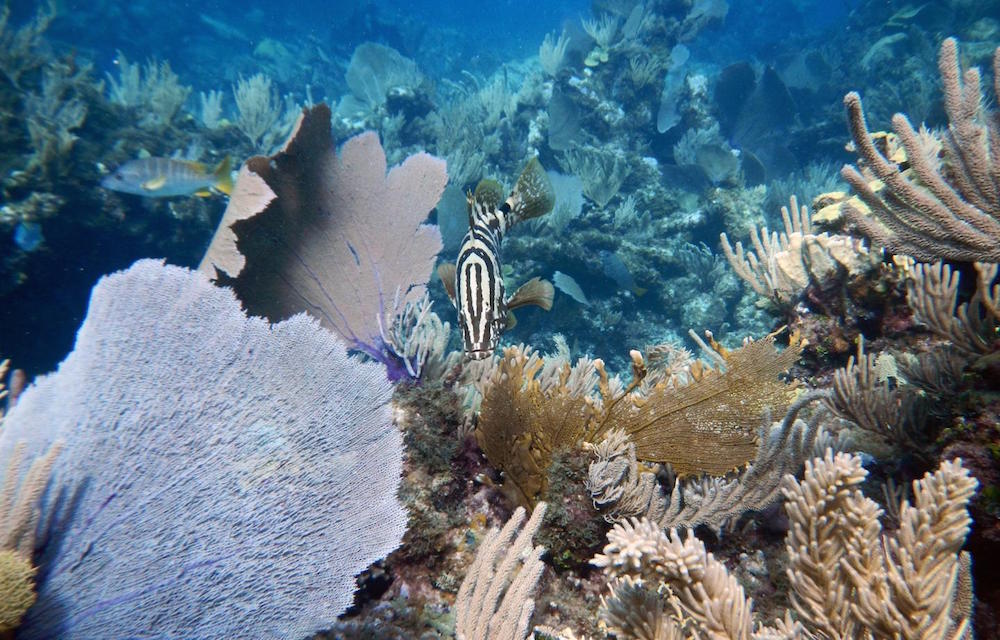Coral Reefs Flourish Thanks to … Fish Pee?

Getting peed on is a good thing, at least for coral reefs, scientists have found.
When fish let loose, they release phosphorus into the water. This, combined with nitrogen excreted from their gills, is crucial for coral reef survival and growth, according to recent studies.
Now, new research shows just how much this "fishy waste" matters. When scientists studied areas with heavy fishing, they found that almost half of the key nutrients needed to maintain a healthy reef ecosystem were missing. [How Much of the Ocean Is Whale Pee (and Worse)?]
That's right — large, predator fish are needed to mist the reefs with their pee, study lead author Jacob Allgeier, a postdoctoral researcher at the University of Washington's School of Aquatic and Fishery Sciences, said in a statement.

"Fish hold a large proportion, if not most, of the nutrients in a coral reef in their tissue, and they're also in charge of recycling them," Allgeier said. "If you take the big fish out, you're removing all of those nutrients from the ecosystem."
To study the impact of these nutrients, researchers surveyed 143 fish species at 110 sites across 43 Caribbean coral reefs. Some reefs had few fish because of commercial fishing, whereas others were marine preserves with fishing bans.
Reefs with many large, predator fish had the healthiest levels of nutrients, the researchers found. Meanwhile, reefs with few large fish had about 50 percent fewer nutrients, including phosphorous and nitrogen, which are essential to their survival, the researchers said.
Sign up for the Live Science daily newsletter now
Get the world’s most fascinating discoveries delivered straight to your inbox.
"This study is useful to understand alternative ways fishing is affecting coral reef ecosystems," Allgeier said.
Big fish
When fishers target big fish — such as grouper, snapper and barracuda — the fish, and their pee, disappear, the researchers said.
Normally, fish take shelter in coral reefs during the day, whiling away the time as they relieve themselves. At night, they typically forage for food within the reef communities.

Researchers have known about this behavior for decades. A 1983 study published in the journal Science found that schools of fish did this peeing-during-the-day routine within coral communities, and that corals with these schools grew more than twice as fast as reefs without schools.
Allgeier said the results of the 1983 study inspired him to conduct his new research. He knew that coral reefs operate on a "tight" nutrient cycle, meaning they need an efficient transfer of nutrients in order to grow. Fish help regulate this cycle with their pee and gill excretions, he said.
So Allgeier spent four years measuring how many nutrients fish released, which allowed him to build a giant data set of fish size and nutrient output. He did this by catching hundreds of live fish, putting them in plastic bags for 30 minutes, and measuring the nutrients of the water before and after, he said.
The results showed that nitrogen output was related to fish size, and that carnivorous fish peed more phosphorus than small herbivorous fish.
What's more, models created by Allgeier and his colleagues will help researchers estimate how much waste specific species and sizes of fish release, he said. "It's remarkable how robust the models are just from knowing fish size and species," he said.
The study was published online Aug. 16 in the journal Nature Communications.
Original article on Live Science.

Laura is the archaeology and Life's Little Mysteries editor at Live Science. She also reports on general science, including paleontology. Her work has appeared in The New York Times, Scholastic, Popular Science and Spectrum, a site on autism research. She has won multiple awards from the Society of Professional Journalists and the Washington Newspaper Publishers Association for her reporting at a weekly newspaper near Seattle. Laura holds a bachelor's degree in English literature and psychology from Washington University in St. Louis and a master's degree in science writing from NYU.










